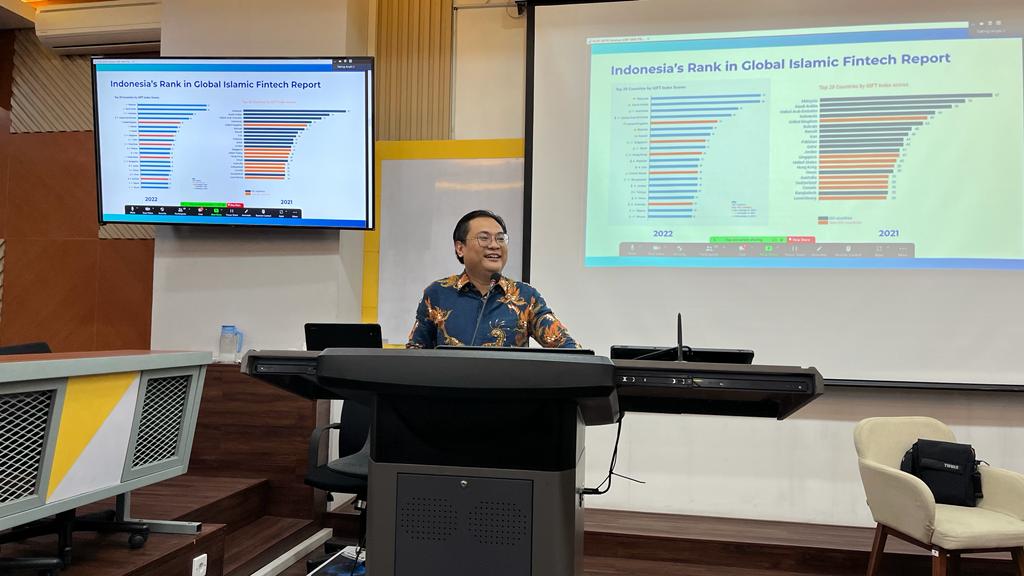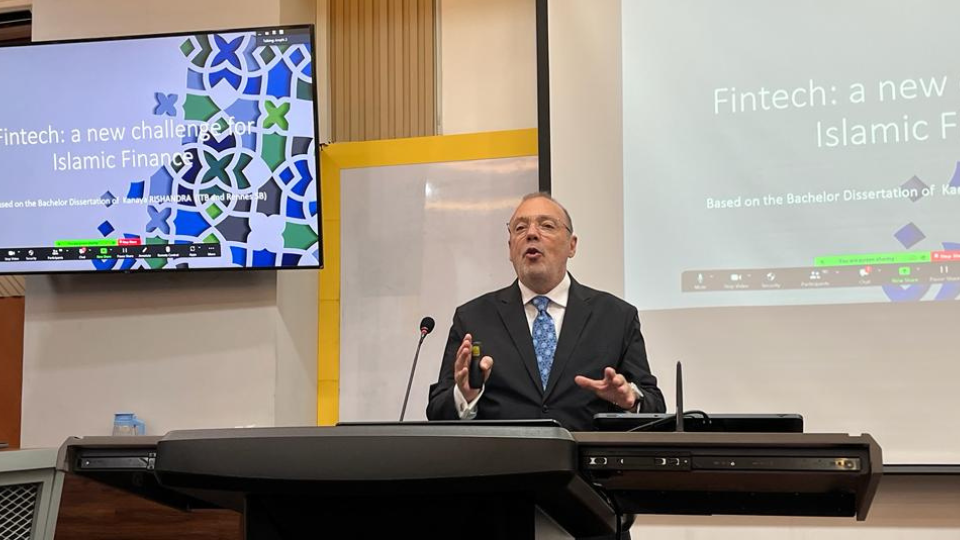Artificial intelligence (AI) has created unprecedented changes in the sharia fintech industry. Responding to this phenomenon, the Center for Islamic Business SBM ITB held a seminar presenting Christos Alexakis, Associate Professor from the Department of Finance and Accounting Rennes School of Business, and Rama Yurindra, General Treasurer of the Indonesian Sharia Fintech Association (AFSI), 5/10.

Indonesia currently holds a strong position in the global sharia fintech ranking. According to the 2022 Global Islamic Fintech Report by Dinar Standard, Indonesia is ranked third in the Global Islamic Financial Technology Index, just behind Malaysia and Saudi Arabia.
Rama Yurindra highlighted that even though Indonesia has a high global ranking, Indonesia still faces challenges in customer education and identifying quality talent. Responding to these challenges, AFSI has established partnership programs with universities throughout Indonesia. Through this collaboration, AFSI aims to increase financial literacy in Indonesia.
Meanwhile, Christos Alexakis provided an overview of the latest sharia fintech trends. The latest trend in sharia fintech is the integration of AI into the industry.
One of the latest applications of AI in the sharia fintech sector is environmental, social, and governance (ESG) reporting. The same ethical standards drive the unification of sharia and ESG principles.
Islamic finance has a “no-harm” principle, ensuring that business transactions do not cause harm to any party involved. Likewise, ESG has the principle of minimizing the negative impact of business on society and the environment.
The problem is that ESG compliance and reporting come at a high cost. ESGenius, an AI platform designed to make ESG reporting easier, offers a solution by creating a free report for MSMEs called “ESG Readiness Rating.” This rating is calculated through a questionnaire based on global standards set by organizations such as the Global Reporting Initiative and the Sustainability Accounting Standards Board. Another application of AI in sharia fintech is creating insights for customers.
“Generative AI makes it possible to put meaning back into numbers,” explained Christos.
He explained the role of Generative AI in the context of robo-advisors. This AI, a financial advisor, produces investment recommendations to customers by analyzing financial data such as transaction history, risk profile, and investment volume.
Maintaining consistency, particularly concerning employee quality, remains a persistent challenge in the financial services sector. Quality-control AI that has undergone training can effectively address this challenge by ensuring standardized service delivery and offering real-time guidance to customer service representatives during interactions with customers.
An instance of quality-control AI is a customer service chatbot designed to handle routine tasks that involve minimal decision-making, thereby allowing customer service representatives to concentrate on addressing more intricate customer issues. Consequently, the influence of AI on the financial industry is projected to expand, ultimately benefiting society.
“We have just reached the starting point of understanding how AI will change everything in finance,” said Christos.





